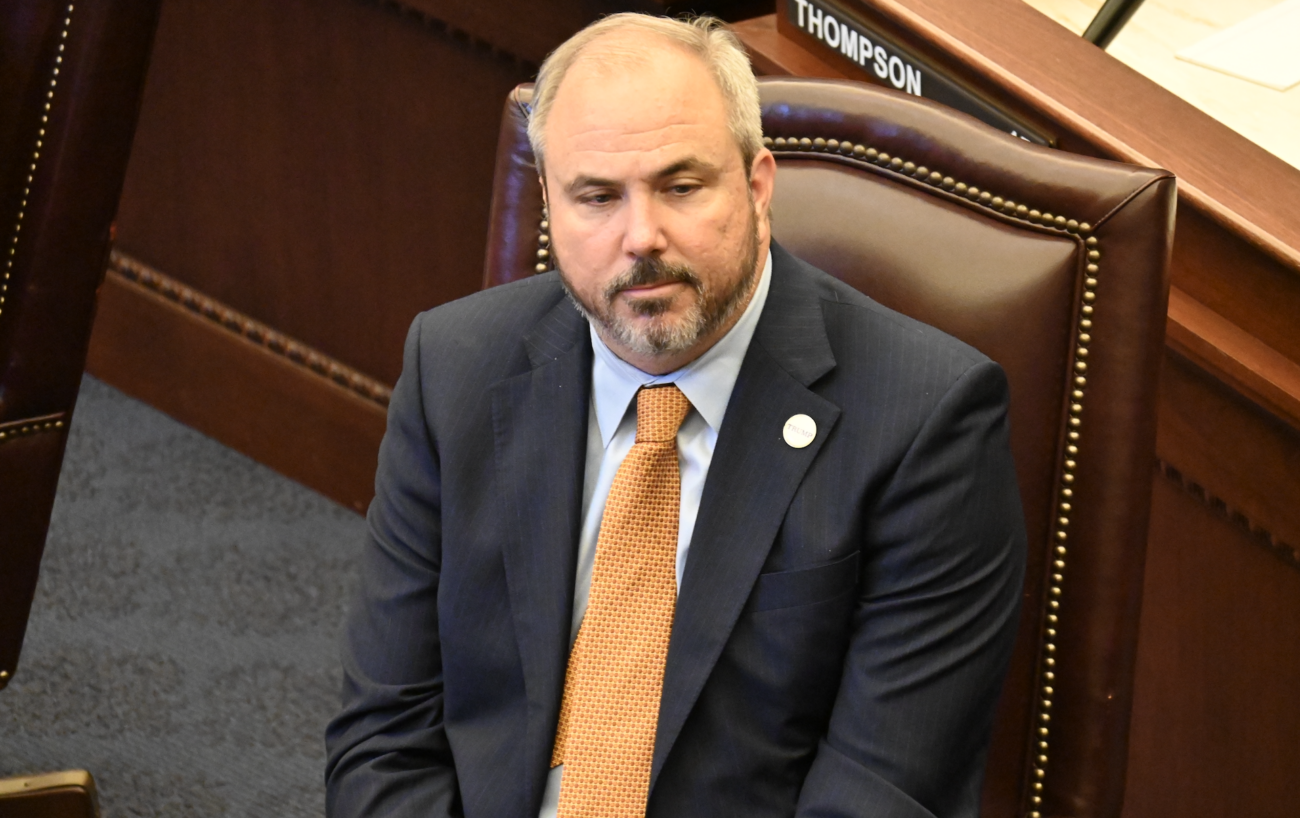By Ryan Dailey
TALLAHASSEE — The Florida Senate moved forward Tuesday with contentious education measures that would increase scrutiny of school library books and limit how certain race-related concepts are taught, though senators tweaked one of the bills passed by the House last month.
The Senate Rules Committee voted 11-5 along party lines to approve the measure involving school-book scrutiny (HB 1467), readying the issue to be considered by the full Senate.
An extension of Republicans’ recent push to increase parental rights and involvement in students’ education, the measure is largely centered on giving parents and members of the public broader access to the process of selecting — and eliminating — library books and instructional materials.
“This is all about transparency and making sure that parents know exactly what's being taught in their schools,” said Gruters, who doubles as chairman of the Republican Party of Florida.
Under the bill, committees that meet for the purposes of “ranking, eliminating, or selecting” instructional materials would be required to include parents of school district students.
The proposal similarly would require school districts to publish to individual schools’ websites procedures related to media centers. Those procedures would have to provide for the “regular removal or discontinuance” of books based on factors such as alignment to state academic standards and relevance to curriculum.
If instructional materials are removed from a school using procedures that are spelled out in the bill, school districts across the state would be notified.
The state Department of Education would be responsible for publishing and regularly updating a list of materials that were removed or discontinued as a result of objections, and in turn the department would “disseminate the list to school districts for consideration in their selection procedures.”
Gruters said other districts would be made aware of prohibited materials “so we do have consistency, from one district to the next, of the books that were banned only.”
The measure drew strong objections from Democrats, who made comparisons between changes proposed in the bill and historical instances of censorship by authoritarian governments.
Sen. Gary Farmer, D-Lighthouse Point, criticized the measure as “really scary stuff” and likened its proposals to book burning in Nazi Germany during the 1930s.
“It’s common knowledge that book burning was an integral part of the propaganda campaign which led to the Nazi party taking control of Germany,” Farmer said.
The Senate committee approved a change to the bill to cap school board members’ terms at 12 years. The House passed the measure earlier this month with eight-year term limits for school board members.
Gruters, who is chairman of the Senate Education Committee, proposed the amendment. If the full Senate passes the bill with 12-year term limits, the measure would have to go back to the House.
“I think 12 years is a better number,” Gruters said. “Sometimes I feel that eight years just isn’t enough for members. And I think 12 years, you should certainly be able to get done everything you want to accomplish in that period of time.”
Danielle Thomas, director of advocacy and legislative services for the Florida School Boards Association, argued that school board elections already provide for regular turnover of members.
“We don’t believe that term limits are needed for our school board members. School boards see greater turnover in their elections than any other elected offices,” Thomas said, telling lawmakers that Florida school boards collectively have seen 36 to 46 percent turnover with each election cycle since 2010.
Later Tuesday, the Rules Committee also voted 11-5 along party lines to approve a measure (HB 7) that would target certain race-related instruction in schools and workplace training sessions. The bill emerged after Gov. Ron DeSantis sought to prevent the teaching of critical race theory, which is based on the premise that racism is embedded in American society and institutions.
Under the measure, which is ready to go to the full Senate, school instruction or a training exercise would constitute discrimination if it “compels” people to believe certain concepts.
For instance, part of the bill dealing with schools would label instruction discriminatory if it led students to believe that they bear “personal responsibility for and must feel guilt, anguish, or other forms of psychological distress” because of actions committed in the past by people of the same race or sex.
Democrats peppered Senate sponsor Manny Diaz Jr., R-Hialeah, with questions about the bill.
“What's the impetus for that line of thinking, that a teacher would create an imposition of guilt on a student because they are talking about history?” asked Sen. Audrey Gibson, D-Jacksonville.
“The impetus would be to have all of these constructive discussions and to make sure that our students are learning our history, including the mistakes and the terrible things that occurred in our past so that they’re not repeated again, without pushing on guilt to the individual student,” Diaz replied.
Critics also questioned the process that Senate Republican leaders used to move forward with the controversial education bills.
During debate over the bill dealing with books and school boards, Farmer suggested that Republicans were engaging in what he called a “Tallahassee two-step.” Both of the House bills had similar Senate versions that had not gone through all of their assigned committees.
“We have a rule in the Senate for House bills, if we’re going to take them up when we haven’t taken up a Senate bill or a Senate bill hasn’t made it through its committees, it’s supposed to require a two-thirds vote. So this is a little Tallahassee two-step here, where they bring the House bill over, refer it to one committee, vote it out of that committee, and then it gets to go to the floor so you don’t have to do that two-thirds vote,” Farmer said.











